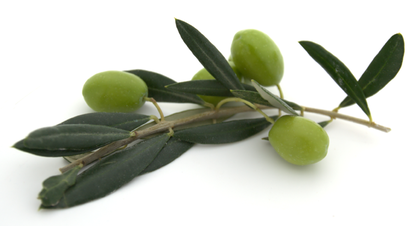|
SUPER OLIVE HEALTH
Olive Leaf Extract (Olea europaea) Olive Leaf History
Olive leaf is the leaf of the olive tree (Olea europaea) and was first used medicinally in Ancient Egypt. It is gaining recognition as a powerful defender against sickness and numerous scientific studies have been conducted to investigate the extracts beneficial properties. The reported benefits of olive leaf extract range from promoting increased energy and healthy blood pressure, to supporting the cardiovascular system and the immune system. Olives are native to Asia Minor and Syria, but are cultivated in Mediterranean countries and also Chile, Peru and South Australia. More recent knowledge of the olive leaf's medicinal properties dates back to the early 1800s when pulverised leaves were used in a drink to lower fevers. A few decades later, green olive leaves were used in tea as a treatment for malaria. Olive leaf extract is gaining recognition as a powerful defender against sickness, and numerous scientific studies have been conducted to investigate the extract's beneficial properties. The reported benefits of olive leaf extract's range from promoting increased energy and healthy blood pressure, to supporting the cardiovascular system, and the immune system. From research to date, we can say that supplemental olive leaf may be beneficial in the treatment for conditions caused by, or associated with, a virus, bacterium or protozoan. Many people who live stressful lives or who may be particularly susceptible to colds and viruses may benefit from long-term use of olive leaf as a preventive agent. Some people have expressed other unexpected benefits of olive leaf, including improved psoriasis, normalization of heartbeat irregularities, diminished cravings, less pain from hemorrhoids, toothaches and chronically achy joints. |
In 1962 an Italian researcher recorded that Oleuropein had the ability to lower blood pressure in animals. It dilates the blood vessels so that blood may flow more easily throughout the system. Other European researchers validated that claim and also found it to increase blood flow in the coronary arteries, relieve arrhythmia and prevent intestinal muscle spasms. In the years to following, a Dutch researcher identified that a primary ingredient in oleuropein inhibited the growth of viruses, bacteria, fungi and parasites. This chemical was elenolic acid. Further European research determined this compound to have strong bactericidal, anti-viral and anti-fungal capabilities. A safety study on calcium elenolate was tested with laboratory animals and published by the Upjohn pharmaceutical company in 1970. The study concluded that even in doses several hundred times higher than recommended; no toxic or other adverse side effects were discovered.
Research suggests that olive leaf may be a true anti-viral compound because it appears to selectively block an entire virus-specific system in the infected host. This appears to offer healing effects not addressed by pharmaceutical antibiotics. Olive leaf's broad killing power includes an ability to interfere with critical amino acid production for viruses; an ability to contain viral infection and/or spread by inactivating viruses by preventing virus shredding, budding or assembly at the cell membrane; and the ability to directly penetrate infected cells and stop viral replication. |
Disclaimer: The entire contents of this website are based upon the opinions of Dr. Wallach. The information on this website is not intended to diagnose, treat, cure any disease and is not intended as medical advice. It is intended as information and knowledge from the research and experience of Dr. Wallach. If you are pregnant, nursing, taking medication, or have a medical condition, consult your health care professional before using products based on this content.


